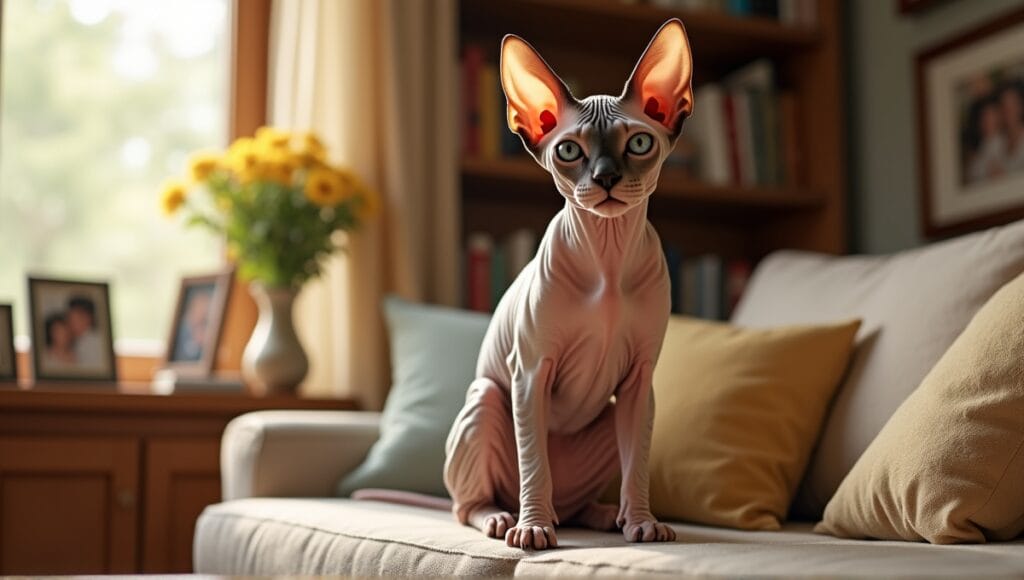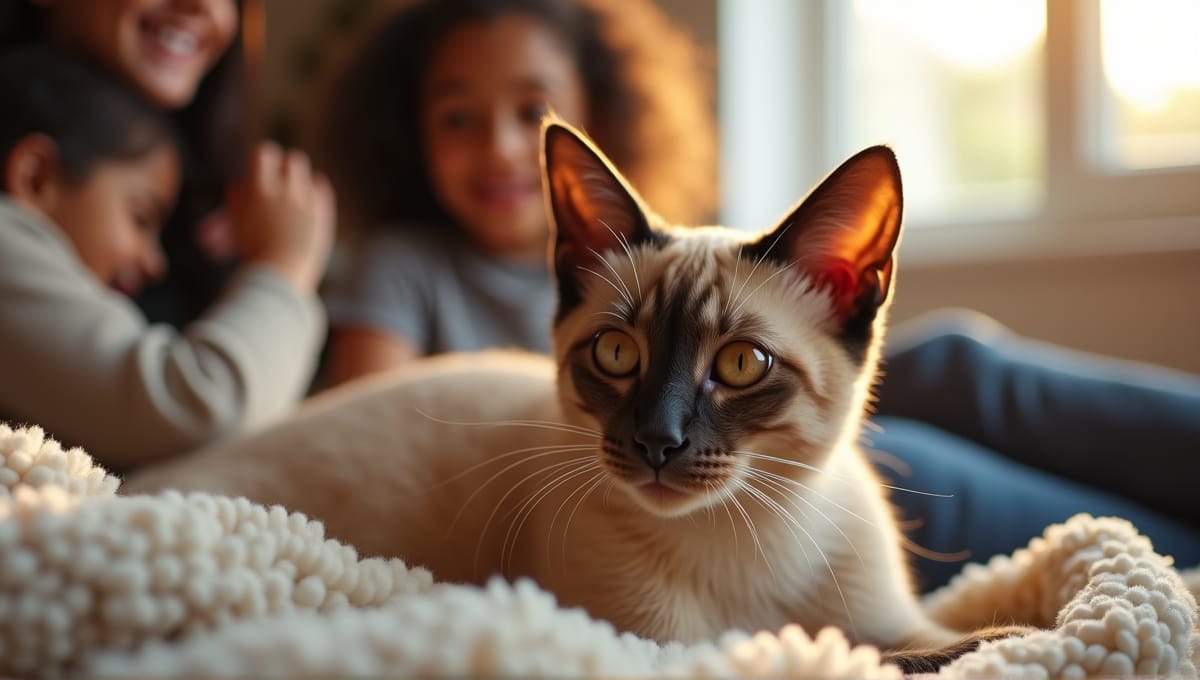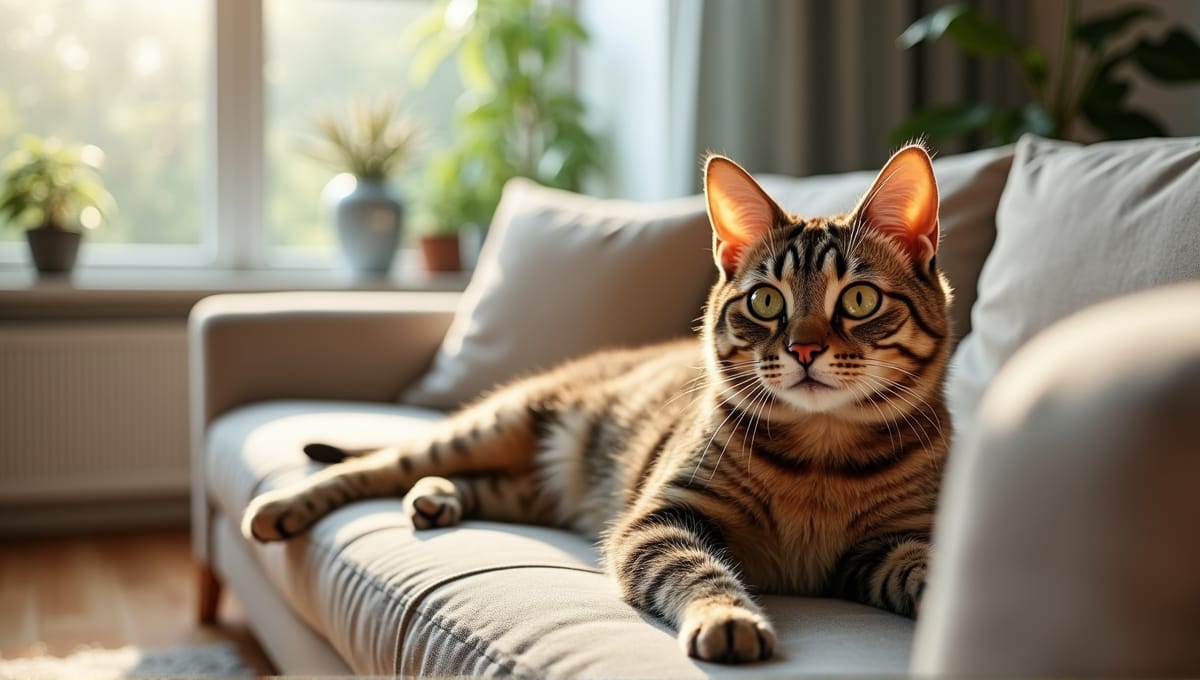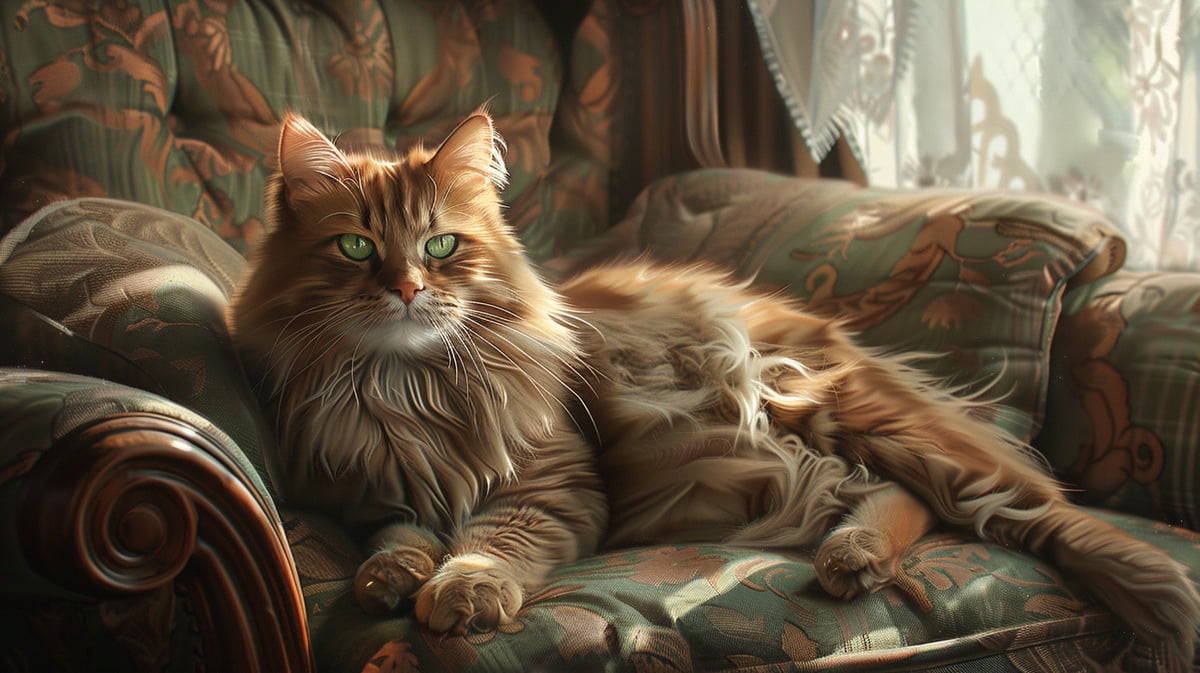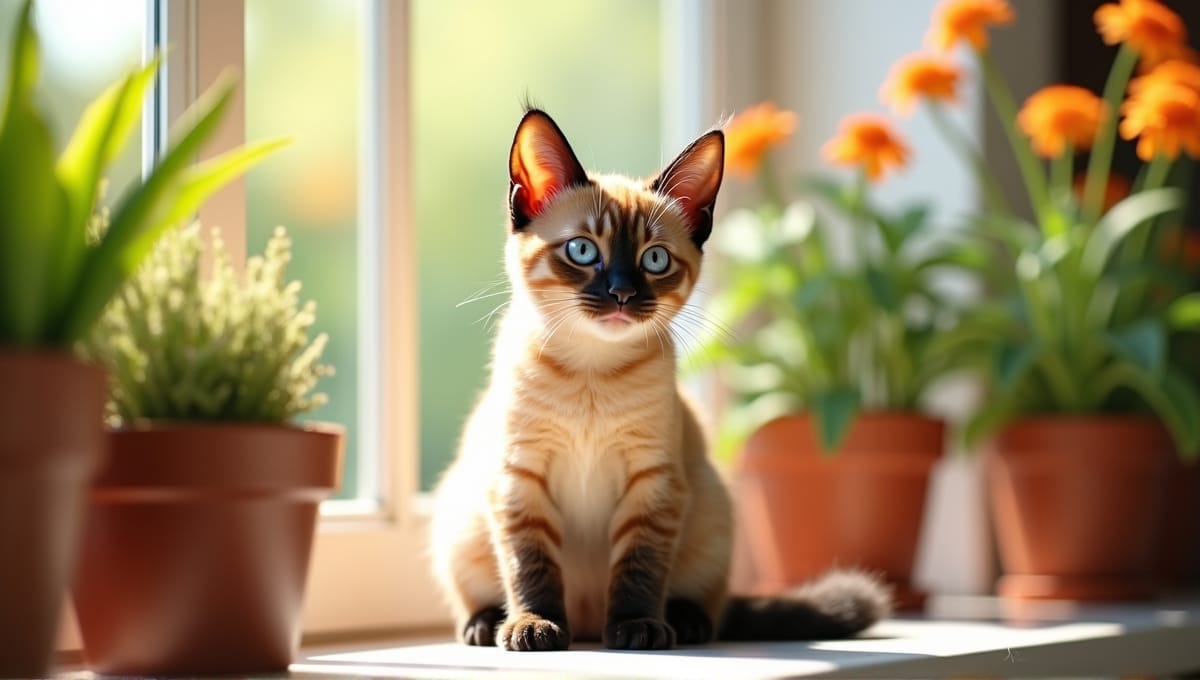Sphynx cats are a special breed of hairless cats that steal the hearts of many cat enthusiasts. I’ve been a cat expert for years, and I’ve worked with these unique cats. They are energetic, loving cats, but they do have some specific care requirements. So, if you’re considering a Sphynx cat for your family, you might be wondering … * What are they like? * What care do they need? * Are they good pets?
Physical Characteristics of Sphynx Cats
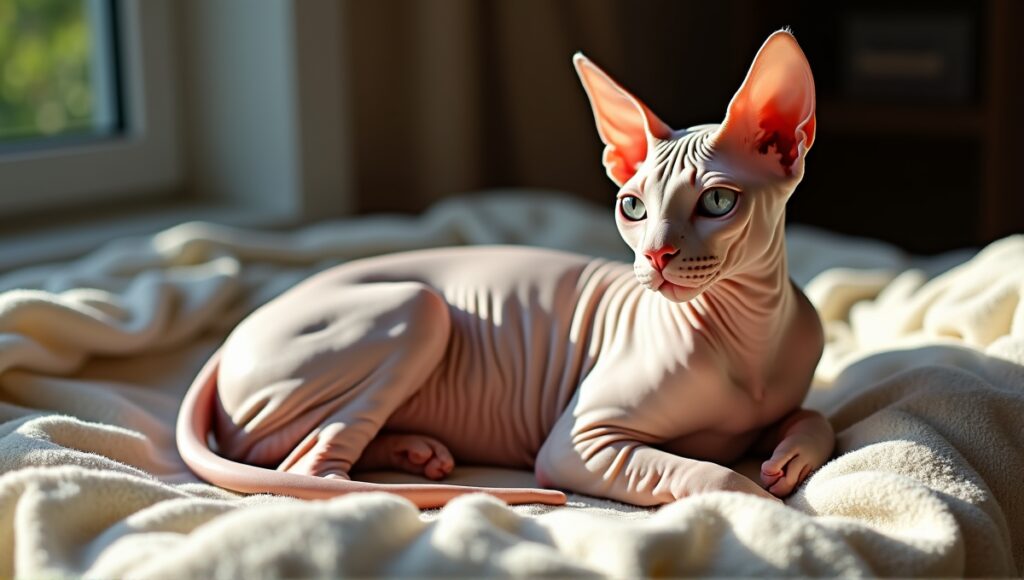
Sphynx cats are truly unique in appearance. The most obvious characteristic is their hairless bodies. They have a muscular appearance with a wrinkled skin. Additionally, Sphynx cats have large ears and lemon-shaped eyes. Many people say their faces look elf-like.
While they are often referred to as “hairless,” Sphynx cats actually aren’t completely bald. Instead, they have a fine layer of peach fuzz covering their skin. This peach fuzz gives them a very unique feel. When you touch a Sphynx cat, you’ll likely be surprised at how warm and even soft they feel.
Sphynx cats come in various colors and patterns including solid white black tabby and calico. The pigmentation of their skin will show through the color or pattern of what would typically be their fur.
Here are the typical Sphynx cat weights:
- Males: 8 to 11 pounds (3.6 to 5 kg)
- Females: 6 to 9 pounds (2.7 to 4 kg)
They are medium-sized cats with a solid build. Because they don’t have a coat, you can easily see the muscle definition of their body. You can see every ripple and curve.
Distinctive Hairless Feline Personality Traits
I’ve spent many hours with Sphynx cats, and they are among the most loving cats I’ve encountered. These cats just want to be near you. They’ll often be found sitting in your lap or snuggled under the covers with you.
Sphynx cats are intelligent. Their natural curiosity drives them to check every nook and cranny of your house. They’re always up for an adventure or a new puzzle toy, so you’ll want to ensure you keep them mentally engaged to prevent boredom.
Energy-wise, Sphynx cats aren’t lazy. They enjoy playing and can be quite acrobatic. You may see them jumping from one perch to another or energetically playing with toys. Their love for play makes them a great fit for an active family.
Sphynx cats tend to get along well with other pets and kids. They’re so social and just want to be a part of your family. Regardless of what you’re doing, they’ll be in the middle of it and won’t want to miss out.
Additionally, Sphynx cats are notorious for being vocal. They’ll talk to you all day long with different chirps, meows, and purrs. It’s like you have your own little conversationalist.
Essential Care for Hairless Felines
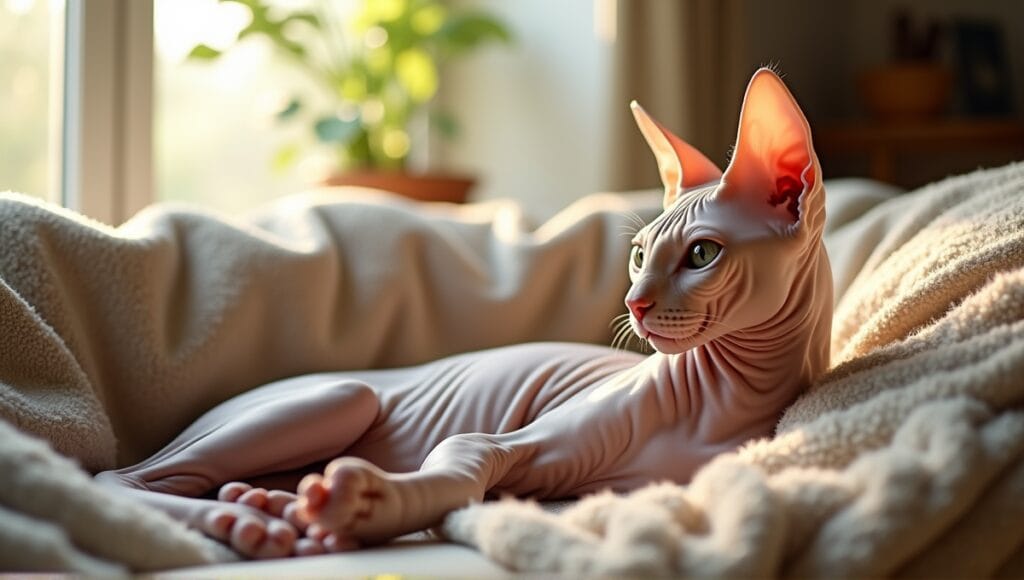
Caring for a Sphynx cat is a little different from caring for other cat breeds. They have unique grooming requirements because they are hairless. Here’s a quick overview:
- Grooming needs:
- Weekly baths to prevent oil buildup
- Regular nail trimming
- Frequent ear cleaning
- Gentle moisturizing to prevent dry skin
Sphynx cats need more baths than other cats because their skin produces oils that would normally be absorbed by their fur. Without fur, these oils can build up, so plan to bathe your Sphynx cat at least once every 1-2 weeks to keep their skin clean and healthy.
Temperature regulation is also a key consideration with Sphynx cats because they get cold easily without fur. Keep your home at 70-80°F (21-27°C) for your Sphynx cat’s comfort, and consider investing in a few sweaters or heated beds to keep them warm when it’s cooler.
Sphynx cats also have higher metabolisms than furred cats, as they require more energy to stay warm. As a result, you should expect to feed them 20-30% more food, and ensure they’re eating a high-quality diet of protein and healthy fats. You may also need to feed them more frequently, depending on the specific food you choose.
Finally, don’t forget about regular nail trims, as their nails can grow longer faster than some other cat breeds. You’ll also need to clean their large ears more frequently to prevent wax and infection.
Medical Issues in Hairless Felines
Sphynx cats are relatively healthy, but there are a few breed-specific health issues you should be aware of. As a Sphynx owner for many years, I’ve become familiar with the most common health problems.
Skin problems are a major concern for Sphynx cats. Without any fur to protect their skin, they are susceptible to sunburns, rashes, and skin infections. Therefore, you’ll want to keep a close eye on their skin for any changes or signs of irritation.
Heart issues, specifically hypertrophic cardiomyopathy (HCM), is another common health issue in Sphynx cats, affecting around 20%. HCM is a condition where the heart muscles thicken. Regular vet checkups and heart scans are essential to catch this condition early.
Other health problems to watch out for in Sphynx cats include:
- Respiratory problems
- Dental problems
- Hereditary myopathy (muscle weakness)
Preventative care is the best approach to ensuring your Sphynx lives a healthy life. This includes regular vet checkups, vaccinations, and dental cleanings. With proper care, Sphynx cats typically live for 12 to 14 years.
Sphynx Cat Breed History
The Sphynx breed has an interesting history. The initial hairless cat was documented in Mexico in 1903, but the modern Sphynx breed originated in Toronto, Canada in 1966.
A hairless kitten named Prune was born to a domestic shorthair cat as a result of a natural genetic mutation. When breeders realized the potential of this distinctive cat, they began developing the Sphynx breed in the 1970s.
The hairlessness in Sphynx cats is the result of a mutation in the keratin 71 (KRT71) protein, which is the same gene responsible for the short, curly coat of Devon Rex cats.
The Sphynx breed was established in the 1970s and earned championship status in The International Cat Association (TICA) in 1986. The Cat Fanciers’ Association (CFA) later granted them championship status in 2002.
Sphynx cats have become more and more popular over the years. While they were originally considered novelties, they’re now cherished as pets across the globe thanks to their unique appearance and sweet, affectionate nature.
Sphynx Cats as Pets
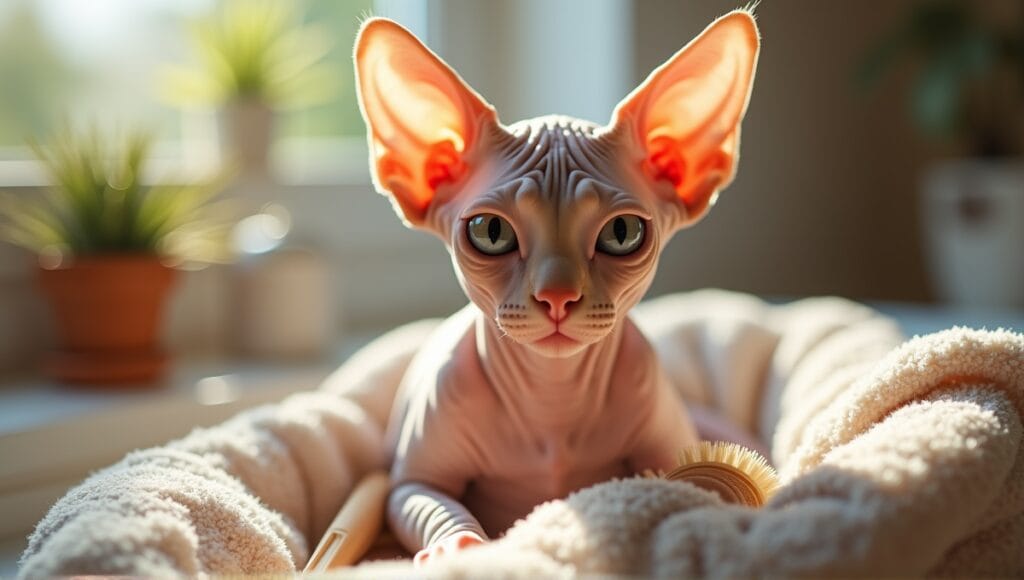
Sphynx cats are great pets for the right families. They do well in homes where they receive a lot of attention and affection. If you want a more independent, low-maintenance cat, the Sphynx is probably not the best choice.
They are excellent indoor cats due to their lack of fur. Without a coat, they can easily get sunburned and feel uncomfortable in extremely hot or cold temperatures. Therefore, you should keep them inside.
Sphynx cats are high maintenance in terms of time. They require regular grooming and baths, as well as plenty of playtime. Additionally, they are always seeking your attention and love.
In my opinion, Sphynx cats are good with kids and other animals. They are playful and make great playmates for children. They also bond well with other cats and sometimes even dog siblings.
Acquiring a Sphynx Cat
When it comes to acquiring a Sphynx cat, you can either buy from reputable breeders or adopt one. Breeders offer health guarantees and breed-specific information. Adoption through shelters or rescue groups is more affordable and allows you to give a home to a cat in need.
Sphynx cats can be costly. Breeders charge anywhere from $1,500 to $5,000. Adoption fees are significantly less, although Sphynx cats are a rare find in shelters.
- Before acquiring a Sphynx, ask yourself:
- Can you manage their high-maintenance care?
- Is your home suitable for a temperature-sensitive cat?
- Are you willing to deal with potential health problems?
To make your house a better fit for a Sphynx cat, look into high-quality cat furniture, heated beds, and interactive toys. Set up cozy areas for them to snuggle and keep warm. Keep in mind they’ll also want to feel tall, so cat trees or wall-mounted perches are nice to have.
If you’re interested in exotic cat breeds, the Sphynx is certainly one to consider. Their unique appearance and loving personality make them a fascinating choice for many cat enthusiasts.
A Few Last Words
Sphynx cats are truly unique animals. They are easily recognized in the cat world due to their distinctive appearance and loving nature. These hairless cats demand particular care and attention, but they give back endless love and joy to their owners. From their wrinkled skin to their comical behavior, Sphynx cats are truly unlike any other pet. They’re not the right fit for all owners, but for those who can provide for them, Sphynx cats are loyal, amusing pets.


